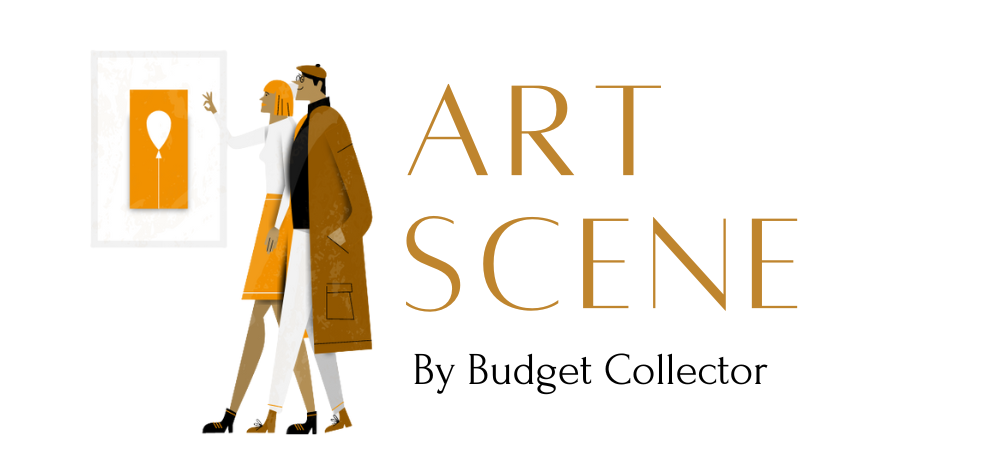How To Find An Art Advisor
As technology has evolved, art advisory has gradually moved to the Internet. What used to take place in a face-to-face meeting and required a long research process can now be done with just a few clicks. There is no doubt that digitization has brought art and art ownership closer to the average person. Fees for consulting services, which used to be extremely expensive and
cost up to hundreds of thousands of dollars, have dropped significantly, lowering the barrier to entry. On this page, we will compare the most popular digital art advisory platforms available today and show why you as an artist or collector should choose Budget Collector’s solution instead.

What is an art advisor?
An art advisor is usually a professional with extensive knowledge of arts, who helps high-net-worth individuals establish their collections. They will frequently provide advice on the best works to buy for financial purposes and will be experts in a particular art type, such as contemporary sculptures, impressionist painters, or even digital artworks. To acquire new works for their clients, art advisers will conduct considerable research on their behalf and attend auctions and private art shows.
What can you expect from digital art advisors?
Modern solutions tend to be two-sided marketplaces, with both creators and collectors present in the digital space. Marketplaces replace the professional, although most solutions cannot (and will not) replace the knowledge and research that an art advisor brings to the process. Budget Collector sets itself apart by using artificial intelligence and machine learning algorithms to make recommendations to collectors that take into account a variety of subjective factors beyond price. Overall, this predicts faster sales, higher prices, and happier collectors and art creators.




Why choose a digital art advisor – Providing key data to art institutions
Budget Collector provides art institutions with demographic data that includes the location of users and their available budget for art spending per year. As part of a Stanford University-funded research project, the platform’s founders found that over 90% of participants in closed beta tests were willing to disclose their budgets. The average annual budget was $4,000, while more than 15% of users had a five-figure annual budget or more.
In this way, artists, as well as organizations and art consultants, can target their potential customers with unprecedented precision. Not only can the collection be organized by subject, artist, or era, but the collector can also be included – with numerous benefits for both parties.
How to view more relevant fine art – Less gatekeeping, more opportunity
Budget Collector makes collectors feel welcome by enabling any artist or art organization to be featured on the site. Most other art advisor sites are exclusive, allowing just a restricted selection of art to be seen, leaving many artists to promote their work on Reddit, Instagram, or Twitter.
Budget Collector’s AI-based system, created by a National Science Foundation award-winning computer scientist, provides for the proper presentation of art to the appropriate potential collector.
Learn in Your Free Time – Art education initiatives
Budget Collector’s educational endeavors benefit all sides of the art market. Among its numerous features, the smartphone app includes a gamified education platform that introduces users to art in a fun way, whether it’s by established or emerging artists.
This method distinguishes the platform in the market and assures a continual supply of collectors, as users will have grown to appreciate art and feel closer to the passion of collecting by the conclusion of the enjoyable learning process.
Data consent – Data ethics focus on the artist
Budget Collector’s team believes that art posted on the platform requires specific consent from the artist or someone who represents the artist. Other digital systems, on the other hand, extract artwork from arbitrary databases without asking for permission or following stringent data approval protocols. This not only focuses on the rights of the creator but also benefits collectors by avoiding legal disputes that may arise later on in the purchase process.
What makes Budget Collector unique – AI-Based curated art shows
The team uses data to create private events and art shows for users based on their preferences. These events feature art from galleries and even museums to showcase emerging artists. This process is greatly facilitated by the learning algorithm built into the system, which processes and classifies the preferences of collectors and buyers.
Budget Collector makes its money not from online orders, but by providing users with exclusive offline and online art events.
Improving the value proposition of all fine art – AI-based art dealer feature
AI-based art dealer service represents artists’ interests in Budget Collector. Prices are never displayed in the app, and the platform’s features empower artists to maximize their income from offline art shows.
A South African artist who took part in the restricted beta test hoped to sell his pieces for $50, but the team discovered that they would sell for $10,000 in southwestern U.S. states using the app’s data.
Budget Collector helps both sides of the marketplace locate the greatest partners by identifying the proper market, venue, and event to sell artists’ best works.
What makes Budget Collector unique – Emerging fits well with established art
Emerging artists will occasionally be paired with known classics in AI-based, in-person curated displays. Artists’ works can be displayed among treasures by Vincent Van Gogh, Pablo Picasso, and Jean-Michel Basquiat at Budget Collector’s events.
What makes Budget Collector unique – Art advisor technology supported by top research institutions
Professional and financial sponsors such as Stanford University, the National Science Foundation, and the University of Michigan were involved in the development of the platform’s artificial intelligence. With their assistance, a one-of-a-kind solution was created that supports contemporary artists while also providing art collectors with essential information and opportunities.









